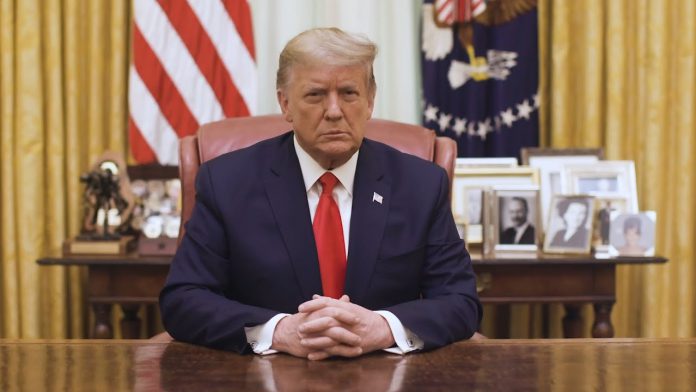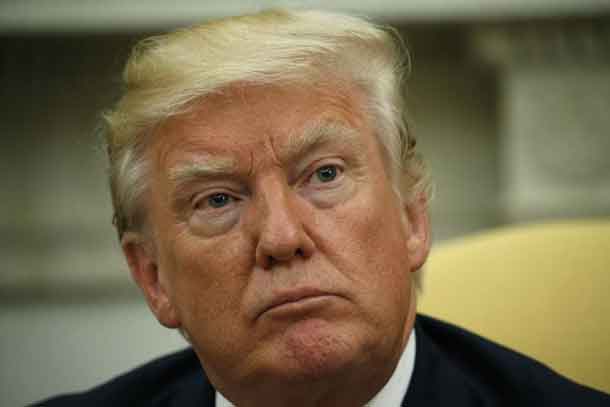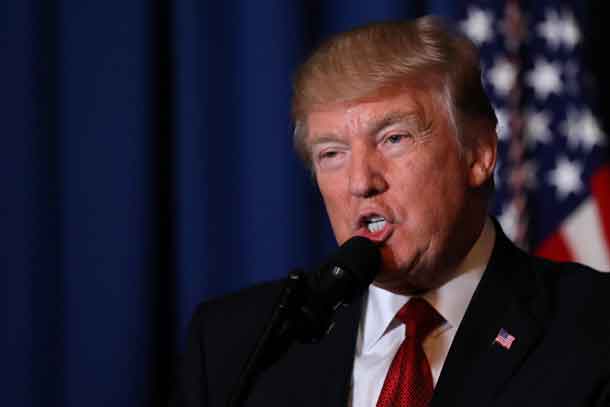Exploring the Loyalty Behind Trump’s Support Base and the Potential for Self-Pardon if Re-elected
Former President Donald J. Trump remains a dominant force in American politics, despite numerous controversies, including claims that he has lied and made statements proven false by fact-checkers. His base of supporters, however, has remained remarkably loyal, often dismissing these allegations or downplaying their significance. This loyalty raises several questions, including how Trump maintains such strong support and whether he might use the powers of the presidency—if re-elected—to pardon himself from criminal charges.
The Psychology of Trump Supporters: Why Do They Ignore False Claims?
One of the key reasons Trump’s supporters overlook falsehoods and remain loyal is the strong emotional connection they feel toward him. For many, Trump represents a voice for their frustrations with the political establishment, media, and cultural elites. His message of “America First” and promises to shake up Washington resonated deeply with those who felt alienated by the traditional political system.
- Confirmation Bias: Many political analysts suggest that confirmation bias plays a significant role in how Trump’s supporters perceive information. People tend to seek out and believe information that aligns with their pre-existing beliefs while ignoring or rationalizing conflicting data. For Trump’s base, fact-checks that disprove his claims are often viewed as part of a broader media conspiracy to discredit him. In this context, media outlets or fact-checkers pointing out falsehoods are dismissed as “fake news” rather than trusted sources of information.
- Distrust of the Media and Institutions: Trump’s relentless attacks on the mainstream media, labeling it as the “enemy of the people,” have helped to erode trust in fact-checking institutions among his supporters. According to a Pew Research Center survey, Trump supporters overwhelmingly distrust the mainstream media, with many seeing it as biased against conservative values. This distrust amplifies their skepticism toward any negative reports about Trump, including those that challenge the accuracy of his claims.
- Identity Politics: Support for Trump often transcends political positions or factual accuracy and instead becomes a matter of identity. Many of Trump’s supporters see him as a defender of their values, particularly on issues like immigration, gun rights, and patriotism. This deep cultural connection means that for many, Trump is not just a political leader but a symbol of resistance against what they perceive as liberal overreach and societal changes they oppose. When Trump is attacked for falsehoods, many supporters feel that their identity is also under attack, leading them to double down on their support rather than reconsider it.
- January 6th Inquiry: The former President has placed the blame on the attack on the United States capital on Nancy Pelosi, and on everyone except himself. His Vice Presidential candidate Senator JD Vance claimed in the debate with Democratic VP nominee Governor Waltz that Trump handed over power peacefully on January 21st. But makes not assertions on Trump actually having lost the election, or on the tragic events of January 6th.
Trump’s Legal Troubles: Would He Pardon Himself?
As Trump faces multiple criminal investigations and legal challenges, speculation has grown about what might happen if he were to regain the White House in 2024. One of the most controversial possibilities is whether Trump might attempt to pardon himself for any and all crimes he may be charged with or convicted of.
- Could He Pardon Himself?: The U.S. Constitution grants the president the authority to issue pardons for federal crimes, but it does not explicitly address whether a president can pardon themselves. Legal experts are divided on the issue. Some argue that the broad language of the Constitution suggests that a self-pardon could be permissible, while others contend that the framers of the Constitution would never have intended for a president to have such sweeping immunity from the law.
In a 1974 memo issued during the Watergate scandal, the Department of Justice’s Office of Legal Counsel argued that the president cannot pardon themselves because “no one may be a judge in their own case.” However, this opinion has never been tested in court. If Trump were to win the presidency in 2024 and attempt a self-pardon, it would likely spark a major constitutional battle that could end up before the Supreme Court.
- Trump’s Own Statements: Trump himself has hinted at the possibility of issuing pardons related to his legal troubles. In an interview with Fox News in 2023, Trump suggested that he has “a right to pardon” and did not rule out the possibility of pardoning himself if necessary. Such statements have fueled speculation about whether a Trump re-election campaign is partly motivated by a desire to avoid criminal consequences.
- Public Reaction and Political Implications: If Trump were to pardon himself, it would likely provoke a fierce reaction across the political spectrum. His supporters might view it as a justified act of self-defense against what they see as politically motivated prosecutions. Critics, however, would likely see it as an abuse of power and a subversion of the rule of law. The political fallout could be immense, with Trump’s presidency once again dominating the headlines and further polarizing the country.
The Larger Implications for American Democracy
The continued loyalty of Trump’s supporters, despite his false claims and legal challenges, underscores the deep political and cultural divisions in the United States. It highlights the erosion of trust in traditional institutions and the rise of a political landscape driven by identity, emotion, and media echo chambers.
If Trump were to attempt a self-pardon, it could push these divisions to a breaking point, raising critical questions about the limits of presidential power and the future of American democracy.
Whether Trump’s base would stand by him in such a scenario seems likely, given their track record of steadfast loyalty. However, the broader public’s response, and the legal challenges that would inevitably follow, remain uncertain.





